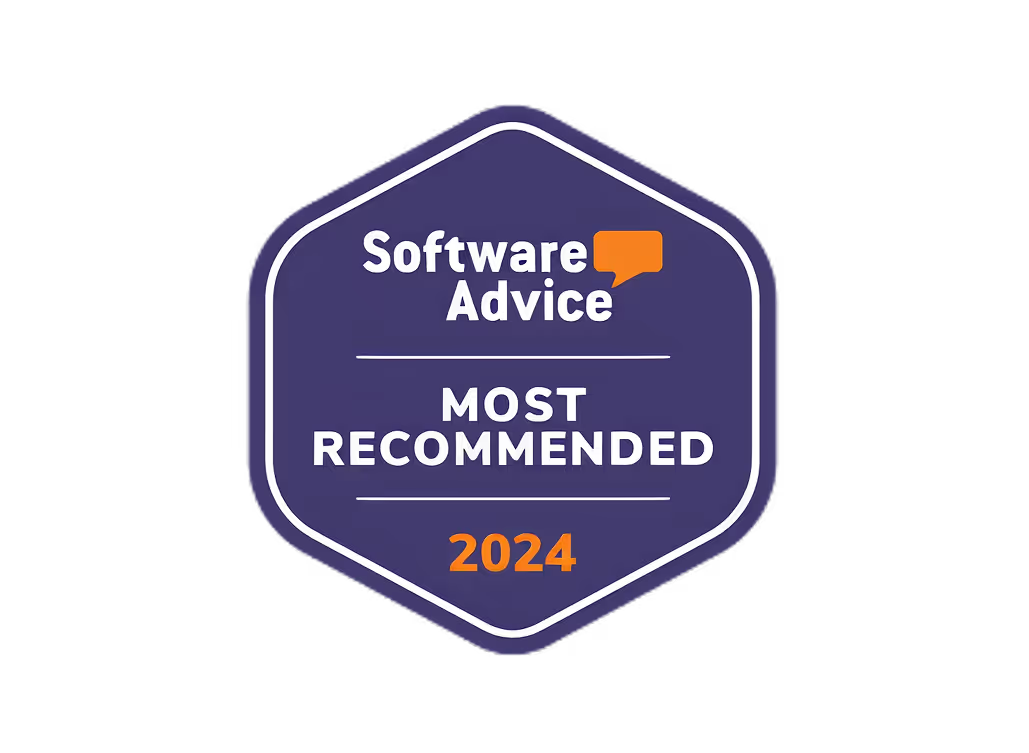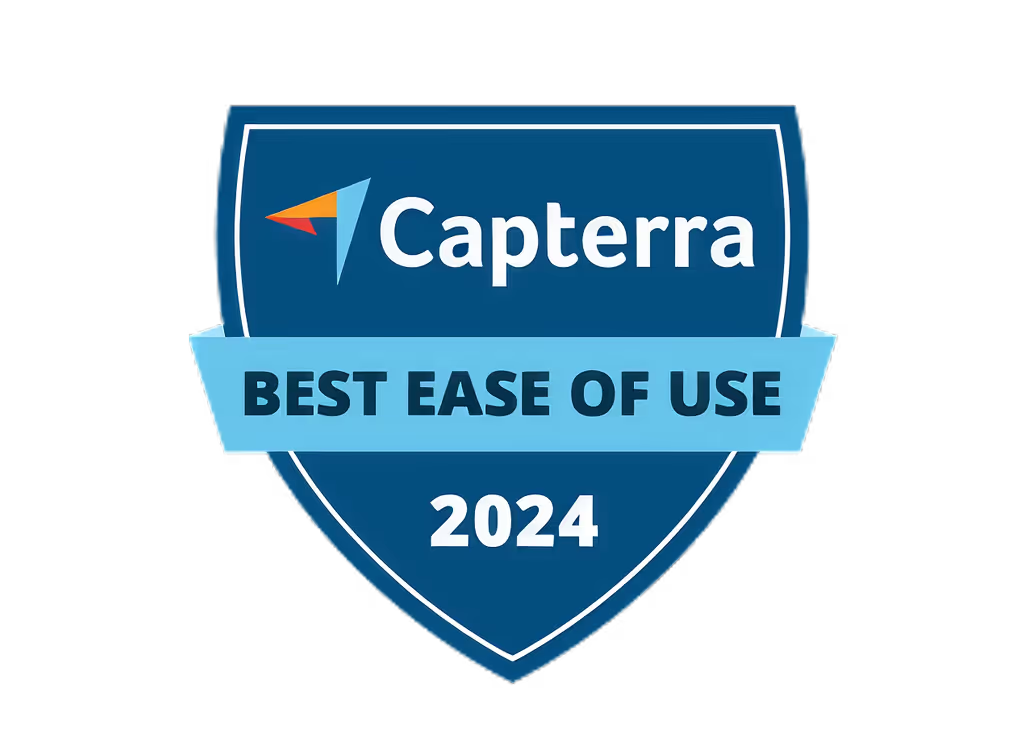Unlock Growth: Finding the Right B2C Digital Marketing Agency for Your Business

So, you're looking to get your business noticed online and need a hand with digital marketing. Finding the right b2c digital marketing agency can feel like a big task, right? It's not just about picking the first one you see. You want someone who really gets what you're trying to do and can actually help you grow. This guide will walk you through what to look for and how to make sure you pick a partner that fits your needs.
Key Takeaways
- Figure out exactly what you want your marketing to achieve before you start looking for an agency. Knowing your goals helps you find the right fit.
- Check what services an agency offers and if they have experience with businesses like yours. Make sure their skills match what you need.
- A good agency understands how people buy things today. They use this knowledge to create messages that connect and drive sales.
- Agencies should use data to show you what's working and what's not. This helps make sure your money is spent wisely and you see real results.
- Building a good working relationship with your agency is important. It means you can work together to keep growing your business over time.
Defining Your Business Objectives For A B2C Digital Marketing Agency
Before you even start looking at agencies, you need to know what you want to achieve. It sounds obvious, right? But so many businesses jump into hiring without a clear picture of their goals. This is where a lot of partnerships go wrong from the start. You wouldn't hire a contractor to build a house without blueprints, and you shouldn't hire a marketing agency without a clear roadmap of what success looks like for your business.
Clarify Your Desired Outcomes
What does success actually mean for you? Is it more website traffic? Better engagement on social media? More direct sales? Or maybe it's about building brand awareness in a new market. Be specific about what you want to accomplish. Instead of saying "increase sales," aim for something like "increase online sales by 15% in the next six months." This kind of clarity helps everyone stay on the same page.
Here are some common desired outcomes:
- Increase website traffic by X%.
- Generate Y qualified leads per month.
- Improve customer retention rate by Z%.
- Boost brand mentions on social media by X%.
- Achieve a specific return on ad spend (ROAS).
Trying to achieve everything at once is a recipe for disaster. Focus on a few key objectives that will have the biggest impact on your business right now. You can always expand later.
Align Agency Strengths With Your Goals
Agencies aren't all the same. Some are amazing at SEO and organic growth, while others shine when it comes to paid advertising or social media campaigns. You need to find an agency whose strengths match your specific objectives. If your main goal is to drive immediate sales through paid ads, hiring an agency that only focuses on long-term SEO might not be the best fit. Look at their case studies and ask them directly about their successes in areas that matter most to you. Understanding their specializations can save you a lot of time and money.
Focus On Measurable Growth Metrics
This is where things get really practical. How will you know if the agency is actually doing a good job? You need to agree on specific, measurable metrics upfront. These aren't just vanity metrics like likes or impressions; they should be indicators of real business growth. Think about things like:
- Conversion Rate: The percentage of visitors who take a desired action (e.g., make a purchase, fill out a form).
- Customer Acquisition Cost (CAC): How much it costs to acquire a new customer.
- Customer Lifetime Value (CLTV): The total revenue a customer is expected to generate over their relationship with your business.
- Return on Investment (ROI): The profitability of your marketing campaigns.
Setting these measurable targets from the beginning makes it much easier to evaluate the agency's performance later on and ensures you're both working towards tangible results.
Key Considerations When Selecting A B2C Digital Marketing Agency

So, you've decided to bring in the pros to help your business connect with customers online. That's a smart move. But with so many agencies out there, how do you pick the right one? It's not just about finding someone who knows their way around social media; it's about finding a partner who truly gets your business and your audience.
Evaluate Offered Services and Specializations
First off, what exactly does the agency do? Digital marketing is a huge field. Some agencies are jacks-of-all-trades, offering everything from SEO and content creation to paid ads and email campaigns. Others are super specialized, focusing on just one or two areas, like a saas seo agency being absolute wizards at search engine optimization and masters of social media advertising. Think about what you need most right now. If you're struggling to get found on Google, an SEO-focused agency might be your best bet. If you need to drive immediate sales, someone who excels at paid advertising could be the ticket. Don't be afraid to ask for specifics. A good agency will clearly outline their services and explain where their real strengths lie. It's also worth checking if they have experience with businesses similar to yours. For example, if you sell handmade crafts, an agency that primarily works with industrial B2B clients might not be the best fit, even if they offer the right services.
Assess Agency Experience and Reputation
This is where you do your homework. What have they done before? Look at their past projects, their case studies, and what their previous clients have said. A solid portfolio shows they can deliver results. Reviews and testimonials are gold here. They give you a peek into how the agency works and how happy their clients have been. A track record of success is a strong indicator of future performance. Don't just take their word for it; see the proof. You can often find client reviews on their website or on third-party platforms. It’s also a good idea to see if they have any awards or recognition in the industry, though this isn't always the most important factor.
Understand Their Approach to Consumer Behavior
This is a big one for B2C. How does the agency plan to understand the people you want to sell to? Marketing to consumers is different from marketing to businesses. It often involves understanding emotions, quick decision-making, and building brand loyalty. Ask them how they research your target audience. Do they use data? Do they conduct surveys? How do they figure out what makes your potential customers tick? A great agency won't just guess; they'll have a solid plan for digging into consumer psychology and behavior patterns. They should be able to explain how they use this information to craft messages that connect and drive action. It's about more than just pretty ads; it's about speaking directly to the needs and desires of your customers. Understanding the nuances of consumer trust is also key; you can find a helpful checklist for this online.
A good agency doesn't just execute tasks; they act as an extension of your team, bringing fresh perspectives and a deep knowledge of the digital landscape to help you achieve your specific business objectives. They should be able to articulate their strategy clearly and demonstrate how it aligns with your overall goals.
Understanding The B2C Digital Marketing Agency's Role
So, what exactly does a B2C digital marketing agency do for your business? Think of them as your bridge builders, connecting your brand directly to the people who want to buy your stuff. They're not just about running ads; they're about understanding who your customers are, what makes them tick, and how to get them excited about what you offer. It's a complex dance, and they're the choreographers.
Bridging The Gap Between Brand And Consumer
At its core, a B2C agency's job is to make sure your brand's message lands with the right people. They figure out who your ideal customer is – not just demographics, but their habits, their needs, their online hangouts. Then, they craft strategies to get your brand in front of them in ways that feel natural, not pushy. This means understanding the whole customer journey, from the moment someone first hears about you to when they become a loyal fan.
Crafting Resonant Messaging And Content
This is where the magic happens. Agencies don't just write copy; they tell stories. They figure out what language your customers speak, what problems they're trying to solve, and how your product or service is the answer. This involves creating all sorts of content – blog posts, social media updates, videos, ads – that speaks directly to those needs and desires. It’s about making your brand relatable and memorable.
- Understanding the customer's pain points: What keeps them up at night?
- Developing a unique brand voice: How does your brand sound?
- Creating compelling visuals: What does your brand look like?
- Tailoring content for different platforms: What works on Instagram might not work on LinkedIn.
Driving Revenue Through Data-Driven Strategies
While creativity is key, a good B2C agency is also incredibly analytical. They use data to understand what's working and what's not. This isn't just about vanity metrics like likes; it's about tracking how marketing efforts translate into actual sales and growth. They'll look at:
- Conversion rates: How many people who see your ad actually buy something?
- Customer acquisition cost (CAC): How much does it cost to get a new customer?
- Customer lifetime value (CLTV): How much is a customer worth over time?
The goal is to make every marketing dollar count. Agencies use these insights to constantly tweak campaigns, ensuring they're not just reaching people, but reaching the right people who are most likely to become paying customers. It's about smart, efficient growth.
Leveraging Consumer Data For Effective Campaigns
Look, marketing to consumers isn't just about shouting your message into the void and hoping for the best. It's about really getting to know who you're talking to. That's where consumer data comes in. It’s like having a cheat sheet for understanding what makes people tick, what they want, and when they want it. Agencies that are good at this don't just collect data; they actually use it to make smarter decisions.
Utilizing Consumer Data Intelligence
This is the first step. You need to gather information about your potential customers. Think about what they do online, what they buy, and what problems they're trying to solve. An agency can help you dig into this, looking at things like:
- Demographics: Basic info like age, location, and income.
- Behavioral Data: What websites do they visit? What do they click on? What have they bought before?
- Psychographics: What are their interests, values, and lifestyles?
The more you know, the better you can tailor your approach. It’s not about being creepy; it’s about being relevant. If you know someone is interested in hiking, you don't want to show them ads for city breaks, right?
Understanding your audience on a deeper level allows you to create marketing that feels less like an interruption and more like a helpful suggestion. It builds trust and makes people more likely to listen.
Personalizing Messages For Maximum Impact
Once you have that data, you can start making things personal. Generic messages just don't cut it anymore. People expect brands to know them. This means sending the right message to the right person at the right time. For example:
- Email Marketing: Sending follow-up emails based on what someone looked at on your site.
- Ad Targeting: Showing ads for products someone has previously searched for.
- Website Content: Displaying different offers or content based on a visitor's past interactions.
This level of personalization makes your marketing feel more like a conversation and less like a broadcast. It shows you're paying attention and that you care about their individual needs.
Optimizing The Full Consumer Journey
Think about the entire path a customer takes, from first hearing about your brand to becoming a loyal fan. Data helps you see where people might be dropping off or getting stuck. An agency can help map this out and find ways to smooth things over.
Here’s a simplified look at a consumer journey and how data helps:
By looking at data at each step, you can make sure the customer's experience is positive and that they keep coming back. It’s all about making it easy and rewarding for them to interact with your brand.
Evaluating Agency Performance And ROI
So, you've picked an agency and kicked off a campaign. Now what? It's time to see if all that effort and money is actually paying off. This isn't just about looking at pretty charts; it's about understanding what's working and what's not, so you can make smart decisions moving forward.
Measuring Success Beyond Clicks And Impressions
Clicks and impressions are a start, sure, but they don't tell the whole story. Anyone can get a lot of eyes on something, but are those eyes turning into customers? We need to look deeper. Think about how many people actually bought something, signed up for a newsletter, or became a lead. That's the real stuff. An agency should be able to show you how their work directly impacts your bottom line, not just vanity metrics that look good on paper but don't mean much for your business.
Understanding Key Performance Indicators (KPIs)
To really know if things are going well, you need to track the right numbers. These are your Key Performance Indicators, or KPIs. They're the specific metrics that show how well you're hitting your goals. For a B2C business, some common ones might be:
- Customer Acquisition Cost (CAC): How much does it cost to get a new customer?
- Customer Lifetime Value (CLV): How much revenue does a customer bring in over their entire relationship with your brand?
- Conversion Rate: What percentage of people who see your ad or visit your site actually take the desired action (like buying something)?
- Return on Ad Spend (ROAS): For every dollar you spend on ads, how much revenue do you get back?
An agency should be able to explain these and show you how they're tracking them for your campaigns.
Ensuring Budget Optimization For Best Results
Your budget is important, and you want to make sure every dollar is working hard. This means the agency shouldn't just spend your money; they should spend it wisely. They need to figure out which channels are giving you the best bang for your buck and focus there. Sometimes, that means shifting funds from underperforming areas to ones that are really driving results. It’s about being smart with the money, not just spending it.
It's easy to get caught up in the excitement of new marketing ideas, but the real test is whether those ideas translate into tangible business growth. An agency's job is to not only be creative but also to be accountable for the financial outcomes of their strategies.
Here’s a quick look at how you might compare performance over a couple of months:
Strategies For Successful B2C Digital Marketing Partnerships

Working with a digital marketing agency isn't just about hiring someone to run ads. It's about building a real partnership. Think of it like a collaboration where both sides are invested in making your business grow. This means clear communication, shared goals, and a willingness to adapt when things don't go exactly as planned.
Building Long-Term Client Relationships
Good partnerships don't happen overnight. They're built on trust and consistent results. Your agency should feel like an extension of your own team, understanding your brand's voice and your customers' needs. This involves:
- Regular check-ins: Scheduled meetings to discuss progress, challenges, and upcoming plans. Don't let weeks go by without talking.
- Open feedback loops: Both you and the agency should feel comfortable sharing what's working and what isn't. Honesty is key.
- Shared vision: The agency needs to understand your long-term business objectives, not just the immediate campaign goals.
A strong relationship means the agency isn't just executing tasks; they're proactively suggesting new ideas and strategies based on their insights into your business and the market. They become a strategic advisor.
Implementing Agile Strategy Adjustments
The digital world changes fast. What worked last month might not work today. A good agency is flexible and ready to pivot. This means:
- Constant monitoring: Keeping a close eye on campaign performance and market trends.
- Data analysis: Using the numbers to figure out what's effective and what's not.
- Quick decision-making: Being able to make changes to campaigns, budgets, or even the overall strategy without a lot of red tape.
For example, if a particular social media platform suddenly becomes less effective for reaching your target audience, an agile agency will quickly shift resources to a more promising channel. They won't wait for the next quarterly review to make that call.
Driving Scalable And Repeatable Growth
Ultimately, you want growth that you can count on, not just a one-off success. This involves creating systems and processes that can be repeated and scaled up as your business expands. Your agency should help you:
- Identify successful tactics: Pinpointing the marketing activities that consistently bring in customers.
- Develop efficient workflows: Streamlining how campaigns are planned, executed, and managed.
- Optimize spending: Making sure your marketing budget is used in the most effective way possible to generate the best return.
Consider this table showing how a successful partnership might allocate resources based on performance:
This kind of data-driven adjustment helps ensure that your marketing investment is always working as hard as possible for you, leading to steady, predictable growth over time.
Wrapping It Up
So, finding the right digital marketing agency for your business isn't just about picking one that looks good on paper. It's about finding a partner who really gets what you're trying to do and has a solid plan to help you get there. Think about what you need most – maybe it's getting more people to your website, or perhaps you need help with social media ads. Make sure they know your goals inside and out. Don't be afraid to ask questions and see if they have a track record of success with businesses like yours. When you find that good fit, it makes all the difference in growing your business online.
Frequently Asked Questions
What exactly does a B2C digital marketing agency do?
Think of a B2C digital marketing agency as your online helper. They use tools like social media, search engines, and email to help businesses connect with regular people, like you and me. Their main goal is to make more people aware of a company's products or services and encourage them to buy.
Why is it important to know my business goals before picking an agency?
It's like telling a taxi driver where you want to go before they start driving. If you know you want more people to visit your website, or sell more products online, you can find an agency that's really good at doing just that. This way, they can focus on helping you achieve what you really want.
What kind of services should I look for?
Agencies offer different things. Some are great at making your website show up higher in Google searches (that's SEO). Others are experts at running ads on social media or Google (that's PPC). You'll want to find one whose skills match what you need your business to do.
How can an agency understand my customers better?
Good agencies are like detectives for customers. They look at information about what people like, what they search for online, and how they shop. Then, they use this information to create ads and messages that really speak to customers, making them feel understood and more likely to buy.
How do I know if the agency is actually helping my business grow?
It's not just about how many people click on an ad. You need to look at real results, like how many people actually bought something or became loyal customers. An agency should be able to show you numbers that prove they are helping your business make more money.
What makes a good partnership with a marketing agency?
A great partnership is like a team working together. The agency should communicate clearly, be open to trying new ideas, and always be focused on helping your business grow. They should be able to adjust their plans as things change, making sure your marketing stays strong.

















